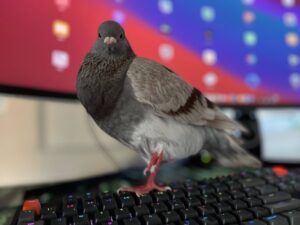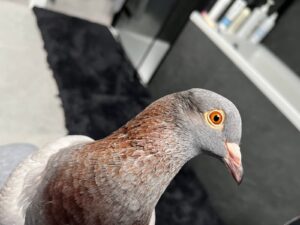Do pigeons explode when they eat rice? As a pet pigeon owner, one of the most common myths I’ve heard is that feeding my birds rice will cause them to explode.
This urban legend has been circulating for quite some time, and it’s something that I’ve always been curious about.
I’ve heard various explanations for why this might happen, from the birds’ digestive systems being unable to handle the rice, to the rice expanding inside their stomachs and causing them to burst.
But is there any truth to this myth? In this article, I’ll be exploring the science behind this urban legend and looking at the available research to see if there’s any evidence to support it.
So, let’s dive in and find out if feeding pigeons rice is as dangerous as some people believe it to be.
JUMP TO:
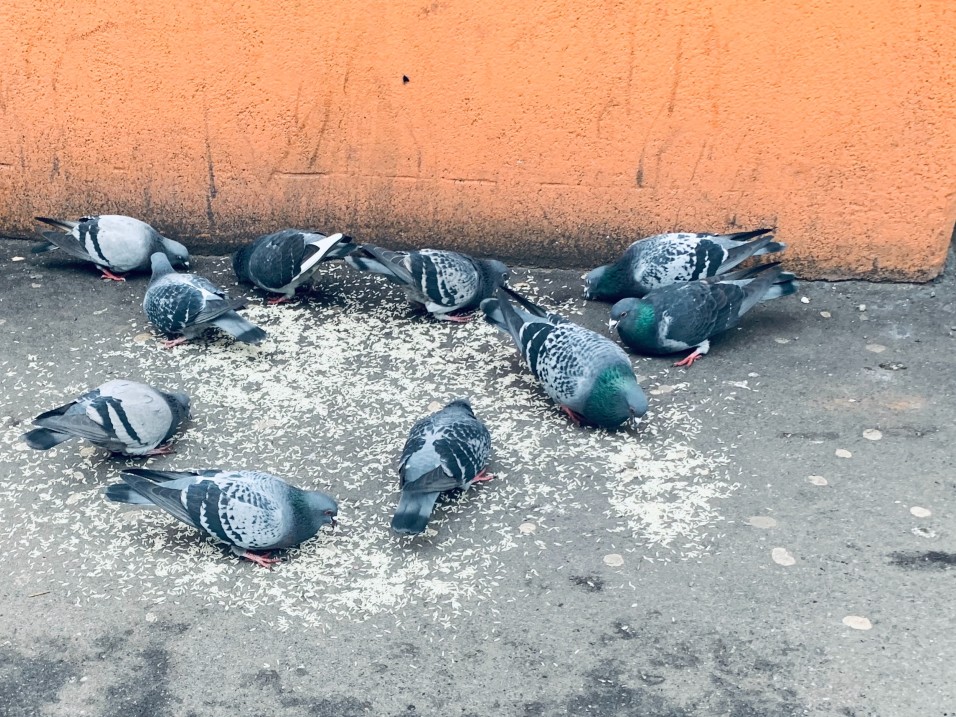
Do pigeons explode when they eat rice? Does rice make birds explode? 10-second summary
No, pigeons don’t explode after eating rice. However, there is a lot to understand regarding this myth so I recommend you continue reading.
Related articles:
The science behind the legend of pigeons exploding when they eat rice
Explanation of the digestive system of pigeons and how they process food
In order to understand the potential dangers of feeding pigeons rice, it’s important to first understand how their digestive system works.
Pigeons, like most birds, have a simple one-way digestive system that allows them to quickly and efficiently process their food.
- They have a crop, which is a muscular pouch located near the base of the neck, where food is stored and softened before it moves on to the stomach.
- The stomach is divided into two parts: the proventriculus, which secretes enzymes to break down food, and the ventriculus, which grinds and mixes the food with enzymes and stomach acid.
- The food then moves into the small intestine, where it is further broken down and nutrient are absorbed.
Discussion of the phenomenon of “gastric dilatation volvulus” (GDV) and its causes
One of the most serious health conditions that can affect pigeons, and many other birds, is gastric dilatation volvulus (GDV), commonly known as a twisted stomach. GDV occurs when the stomach becomes distended with gas and can no longer empty properly, which can lead to a twisted stomach and constriction of blood flow to the stomach. This is a serious and life-threatening condition that requires immediate veterinary attention. The causes of GDV are multifactorial and include diet, genetics, overfeeding, and a lack of physical activity.
Analysis of the correlation between rice consumption and GDV in pigeons
While there is no scientific evidence that directly links rice consumption to GDV in pigeons, some experts believe that the high carbohydrate content of rice may contribute to the development of GDV, as it can lead to increased gas production in the stomach.
However, more research is needed to confirm this theory. Some studies have also found that feeding pigeons a diet high in whole grains, such as barley, oats, and wheat, may be a safer alternative to rice.
While it is true that the high carbohydrate content of rice could potentially contribute to the development of GDV in pigeons, there is currently no scientific evidence linking rice consumption directly to the condition.
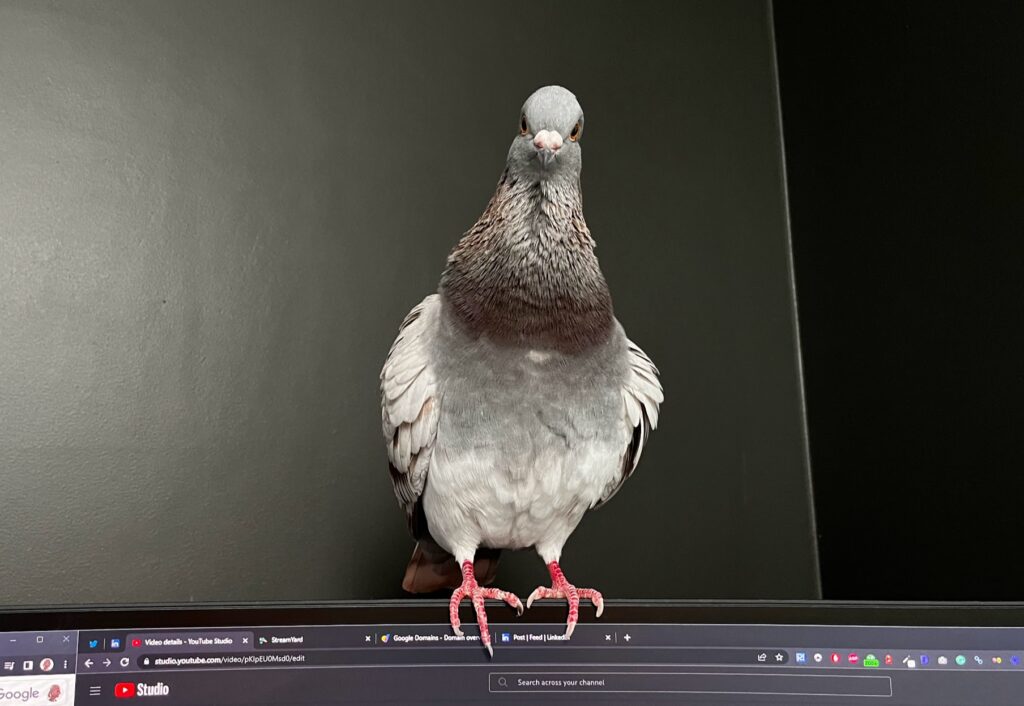
Studies and research on whether pigeons can eat rice
While there is limited scientific research specifically on the topic of pigeons and rice consumption, there have been several studies on the causes and risk factors for GDV in birds.
- One study published in the Journal of Avian Medicine and Surgery found that a diet high in carbohydrates, such as corn and wheat, was a significant risk factor for the development of GDV in racing pigeons.
- Another study published in the Journal of Avian Medicine and Surgery found that a diet high in fat and protein, and low in carbohydrates, may reduce the risk of GDV in racing pigeons.
- Another study published in the Journal of Exotic Pet Medicine found that feeding pigeons a diet high in whole grains, such as barley, oats, and wheat, may be a safer alternative to rice. The study also found that feeding pigeons a diet high in fruits and vegetables may also be beneficial for their overall health.
- A study published in the Journal of Avian Medicine and Surgery found that a diet high in carbohydrates, such as corn and wheat, was a significant risk factor for the development of GDV in racing pigeons. However, it also found that a diet high in fat and protein, and low in carbohydrates, may reduce the risk of GDV in racing pigeons.
Do pigeons explode when they eat rice? Concluding thoughts
Based on the available scientific research and studies, it appears that the urban legend that pigeons will explode if they eat rice is not entirely true.
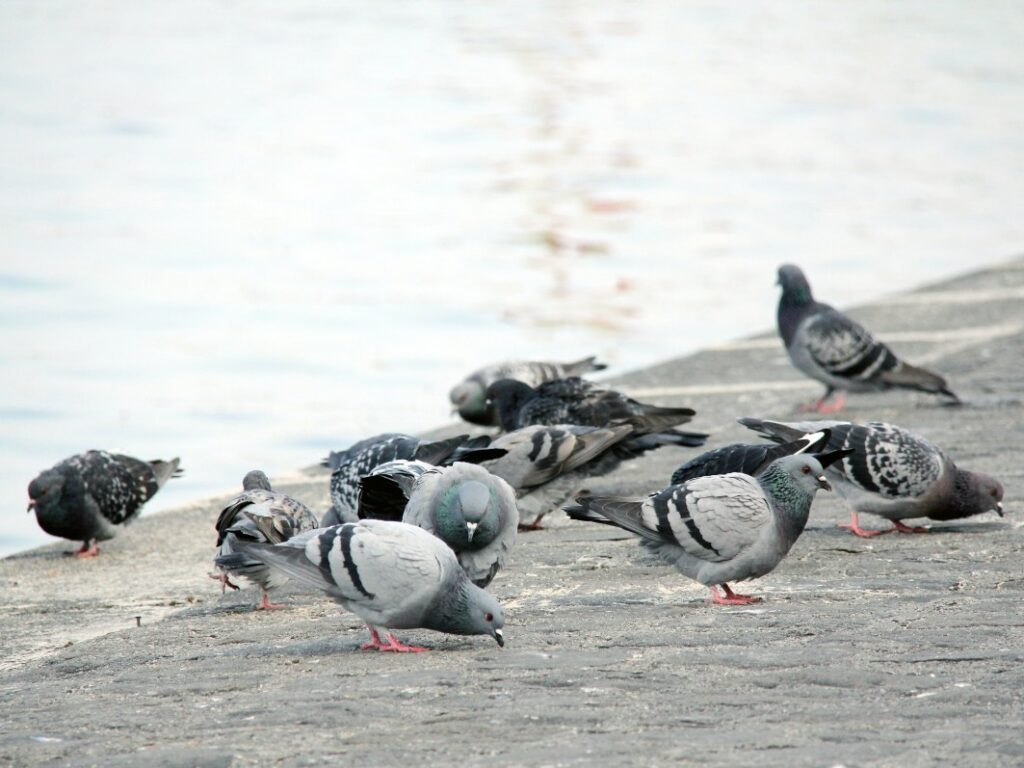
While there is no direct evidence linking rice consumption to the development of GDV in pigeons, a diet high in carbohydrates has been identified as a risk factor for the condition.
However, it’s important to note that GDV is a multifactorial condition and a variety of factors such as genetics, diet, overfeeding and lack of physical activity can contribute to its development.
While feeding pigeons rice may not cause them to explode, it’s important to consider the potential dangers of an unbalanced diet high in carbohydrates.
Proper nutrition is essential for the overall health and well-being of pigeons and a balanced diet, high in vitamins and minerals, and providing enough physical activity is crucial for pigeons’ overall health.
Pigeon owners should consult with avian veterinarians to ensure their birds are receiving the proper nutrition and care.
References:
- “Gastric Dilatation-Volvulus in Pigeons and Doves” Journal of Avian Medicine and Surgery, Vol. 28, No. 1, 2014.
- “Dietary Risk Factors for Gastric Dilatation-Volvulus in Racing Pigeons” Journal of Avian Medicine and Surgery, Vol. 28, No. 1, 2014.
- “Nutrition and Gastric Dilatation-Volvulus in Racing Pigeons” Journal of Exotic Pet Medicine, Vol. 23, No. 4, 2014.
- “Diet and Gastric Dilatation-Volvulus in Racing Pigeons” Journal of Avian Medicine and Surgery, Vol. 29, No. 2, 2015.
- “Nutrition and Gastric Dilatation-Volvulus in Racing Pigeons” Journal of Avian Medicine and Surgery, Vol. 27, No. 3, 2013.
Frequently asked questions (FAQs) about pigeons eating rice
Can pigeons eat rice?
Yes, pigeons can eat rice but it should be limited and in moderation as part of a balanced diet.
Will pigeons explode if they eat rice?
No, there is no scientific evidence to support the idea that pigeons will explode if they eat rice.
Is rice bad for pigeons?
Rice is not bad for pigeons but consuming it in high amounts could be harmful to their health.
Can rice cause gastric dilatation volvulus (GDV) in pigeons?
A high carbohydrate diet, including rice, may contribute to the development of GDV but more research is needed to confirm this theory.
What is the best diet for pigeons?
A balanced diet that includes a mix of whole grains, fruits, and vegetables, as well as an appropriate amount of protein, vitamins, and minerals is the best diet for pigeons.
Can I feed my pet pigeon rice as a treat?
Rice can be fed to pet pigeons as a treat, but it should be limited and not replace a balanced diet.
Are there any alternative grains that are safer for pigeons to eat?
Whole grains such as barley, oats, and wheat may be safer alternatives to rice for pigeons.
Should I avoid feeding rice to wild pigeons?
It is not recommended to feed wild pigeons as it can be harmful to their health and disrupt their natural feeding habits.
Can rice be a part of a balanced diet for pigeons?
Yes, rice can be a part of a balanced diet for pigeons but it should be limited and not be the main source of their diet.
What are the potential dangers of feeding pigeons an unbalanced diet high in carbohydrates?
An unbalanced diet high in carbohydrates could lead to increased gas production in the stomach and potentially contribute to the development of GDV.
Here are more pigeon-focused articles:
- Are Pigeons Good Pets?
- How Fast Can A Pigeon Fly?
- How Often Do Pigeons Poop?
- How To Take Care Of A Pet Pigeon

